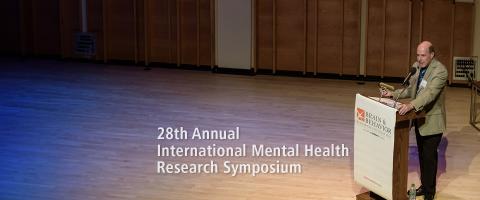
On Friday, October 28, 2016 the Brain & Behavior Research Foundation hosted its 28th Annual International Mental Health Research Symposium. Guests were treated to insightful, educational and inspiring presentations by the 2016 Foundation Outstanding Achievement Prizewinners.
Read More
In adults, bipolar disorder is characterized by swings from severe states of depression to states of either mania or hypomania (a less intense form of mania). A full manic episode usually lasts at least a week, although for some people it can last several weeks.
Read More
From The Quarterly, September 2016
Read More
Adverse childhood experiences such as exposure to trauma or violence, even during the prenatal period when the brain is first developing, mold how the brain is organized, and have major impact on how our genes are expressed. Brain imaging studies show that traumatized children or children raised in poverty have different interconnections in their brain regions. If you’ve been exposed to violence, you’re at an increased risk of being re-victimized.
Read More
Depression is a problem often associated with adults, but young children can have the condition, too. In recent years, researchers have begun to understand how depression manifests in preschoolers, what it does to the brain, and how it may affect their future mental health.
Read More

